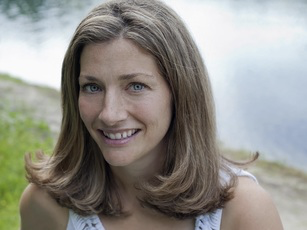Ecumenical Sisterhood by Abigail Henrichs
Ministry can be lone ranger work. I’m not a lone ranger sort of person. I crave connection and the professional energy that comes with sharing ideas. Not long after I was installed into my first pastorate — a solo pastorate — I reached out to local clergy. “Is there a clergy group in our town?” I inquired. No one answered me directly; everyone hemmed and hawed. Then the first anniversary of 9-11 approached. We couldn’t let it pass without doing something as an ecumenical faith community! Area clergy thought it was a great idea to have a unified memorial service, but no one wanted to actually plan. They just wanted to attend and be handed a reading. That was their idea of ecumenical work.
I was new to ministry, but not new to collaboration. I felt like a high school student doing all the work again for the joint history report. Thankfully another female minister in town wanted to help and she was a pastor at a church with a more central town location. Together over lunch we planned an entire service. We called the local police and fire departments. We bought candles. We created a worship bulletin. We publicized the event and then the other clergy showed up.
After that experience, I was done for a while. Planning the one-year anniversary service of 9/11 was not truly ecumenical work. In reality it was two women with similar worldviews and theology organizing. Why do ecumenical work just for show?
Since that early not-so-ecumenical experience, I have had a number of less-than-positive ecumenical experiences. I’ve been told I cannot stand on the altar in a Catholic church because I did not wear a robe (in my ministry context in an emergent church, robes are not worn). I thought my fashion sense was bad, but apparently it’s unholy. In sharing worship space with another church recently, I was asked to make sure we hid our rainbow flag because the other community found them offensive. Perhaps I should have hidden myself since they didn’t approve of female preachers either. Ecumenism has been a thorn in my side, even though I had initially hoped it would be a wellspring of collaboration and community.
Sixteen years into my ordained ministry, I still crave the connection and the professional energy that comes from sharing ministry with other religious leaders. Thankfully, today I have found that connection, but not through typical ecumenical venues. Instead, I have found a sisterhood of faithful women.
I am blessed to have this sisterhood. And when I write sisterhood, I mean sisterhood. I have faithful female friends, both ordained and lay, who engage in the work of Jesus in community with me. They have challenged me to look at things differently, have invited me to participate in radically-other Christian worship services, and have nurtured my spirit when I have felt weary. These sisters are my ecumenical group: a Greek Orthodox who loves her rich worship services, even if she rejects their social teachings; a Catholic lay leader and missionary who has taught me more about the poor and the Catholic tradition than any book; a lesbian pastor whose theology is so orthodox I roll my eyes at her as she walks me through why she can be socially progressive and theologically traditional; a queer Christian educator who shares leading youth group with me; a fellow UCC pastor who, like me, loves collaboration, so we plan 90% of our liturgical season together–and more women than there is room to describe.
This ecumenical sisterhood has enriched my perspective of the Christian church. This sisterhood has helped me look beyond my own black and white construct of feminism to the rich expanse of female strength. Perhaps most importantly for me, this sisterhood has nurtured my own ministry.
Living out our Christian vocations–both lay and ordained–cannot be done alone. The Lone Ranger, in all his loneliness, was never a good model for males. And he’s certainly not a good model for females, especially followers of Jesus. Jesus had a motley crew of disciples, women and men, young and old, rich and poor (though mainly poor). We too need a community of faithful Christian disciples to grant us courage and strength along the journey. If this community is ecumenical our faith will be deepened in unexpected ways by a diversity of perspectives and experiences and unexpected community. I consider myself blessed to have such an ecumenical sisterhood.
Rev. Abigail A. Henrich is known to all, young and old, as just Abby. Ordained at 25 after earning her MDiv at Princeton Theological Seminary and her undergraduate at Colgate, Abby has been immersed in Christian ministry for 16 years. Currently she is the pastor and chief evangelist at Grace Community Boston, an emergent christian community. She is also the pastor of Stratford Street United Church, a neighborhood church reinventing itself into a community hub, in West Roxbury, MA
Mostly Abby is just a fellow traveler wondering how to live faithfully and follow Jesus in the 21st century. She loves God, has been claimed by a guy named Jesus even though she tried to resist, and is passionate about the emergent progressive christian church. She is married to a theologian, is the mother of three, and spends a great deal of time doing dishes and sorting lunch boxes. She is a collector of stories, a baker, and a terrible knitter.

